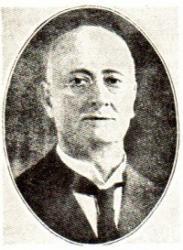Planning worship?
Check out our sister site, ZeteoSearch.org,
for 20+ additional resources related to your search.
- |
User Links
Person Results
H. R. Palmer

1834 - 1907 Composer of "[Glowing bright and pleasant is the holy day]" in Crowning Day, No. 6 Palmer, Horatio Richmond, MUS. DOC, was born April 26, 1834. He is the author of several works on the theory of music; and the editor of some musical editions of hymnbooks. To the latter he contributed numerous tunes, some of which have attained to great popularity, and 5 of which are in I. D. Sankey's Sacred Songs and Solos, London, 1881.
His publications include Songs of Love for the Bible School; and Book of Anthems, the combined sale of which has exceeded one million copies. As a hymnwriter he is known by his "Yield not to temptation," which was written in 1868, and published in the National Sunday School Teachers' Magazine, from which it passed, with music by the author, into his Songs of Love, &c, 1874, and other collections. In America its use is extensive. Dr. Palmer's degree was conferred by the University of Chicago in 1880.
-- John Julian, Dictionary of Hymnology (1907)
===============
Palmer, H. R., p. 877, i. The hymn "Would you gain the best in life" (Steadfastness), in the Congregational Sunday School Supplement, 1891, the Council School Hymn Book, 1905, and others, is by this author.
--John Julian, Dictionary of Hymnology, New Supplement (1907)
H. R. Palmer
C. R. Blackall

1830 - 1924 Person Name: Dr. C. R. Blackall Author of "Sabbath Morn" in Songs of Gladness for the Sabbath School Blackall, Christopher Ruby, M.D., born in New York State, 1830, and educated for the medical profession. For 15 years he followed his profession, including service in the army during the civil war. Subsequently he managed, for 14 years, a branch of the Baptist Publication Society, taking at the same time great interest in Sunday School work. He edited the Advanced Bible Lesson Quarterly, for 3 years, and also Our Little Ones.
1. The prize is set before us. Heaven anticipated. This is one of Dr. Blackall's most popular hymns for children. It was written in 1874 for the Sunday School of 2nd Baptist Church, Chicago, Illinois, and set to music by H. R. Palmer. It first appeared in Palmer's Songs of Love for the Bible School, 1874, from whence it has passed into numerous collections, including I. D. Sankey's Sacred Songs and Solos, Lond., 1881.
2. Follow the paths of Jesus. Following Jesus. This is included in the Baptist Hymn [& Tune] Book, Phila., 1871, No. 701.
3. Do the right, never fear. Duty . In W. R. Stevenson's School Hymnal, Lond., 1880, No. 269.
-- John Julian, Dictionary of Hymnology (1907)
C. R. Blackall
William Horn
1839 - 1917 Person Name: W. Horn Author of "Muthig, Christi Streiter" in Evangelisches Gesangbuch mit vierstimmigen Melodien Horn, William. (Germany, May 1, 1839--April 27, 1917). Evangelical. Come to United States in 1855, settled in Wisconsin. Licensed in 1861, ordained elder 1866, presiding elder 1871, bishop 1891. Editor of various Evangelical German-language publications, including Das Evangelische Magazin and Christliche Kinderfreund. Editor of German weekly of the Evangelical Association, 1883, Christliche Botschafter.
Editor of Evangelisches Gesangbuch, 1877, for which he supplied a number of hymns. His most famous hymn was "Pure and free from all corruption." He wrote 24 hymns in all, and has been called one of the greatest of the German writers in America. Translated many English hymns into German.
Retired as bishop in 1915.
--Robert S. Wilson, DNAH Archives
--Ellen Jane Lorenz, DNAH Archives
William Horn was born in Germany May 1, 1839. He died in 1917. He came to U.S. in 1855 and settled in Wisconsin. Licensed in 1861, he rose through the ranks of ordained elder and bishop. He retired as Bishop in 1915 and died April 27, 1917.
He was the editor of various Evangelical German-lanuage publications
including EVANGELISCHES GESANGBUCH of 1877, for which he supplied a number of hymns.
Of his twenty-four hymns the most famous, according to Ellen J. Lorenz, was "Pure and free from all corruption". He also translated many English hymns into German.
—Mary L. VanDyke for Dictionary of American Hymnology, Oberlin College Library (14 December 2003)
William Horn


 My Starred Hymns
My Starred Hymns

